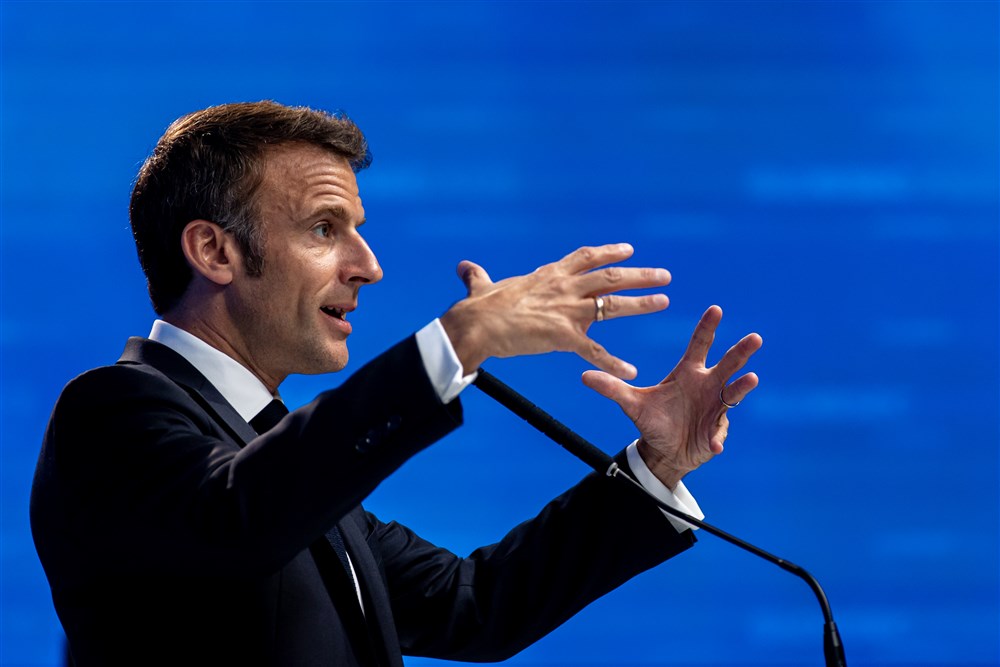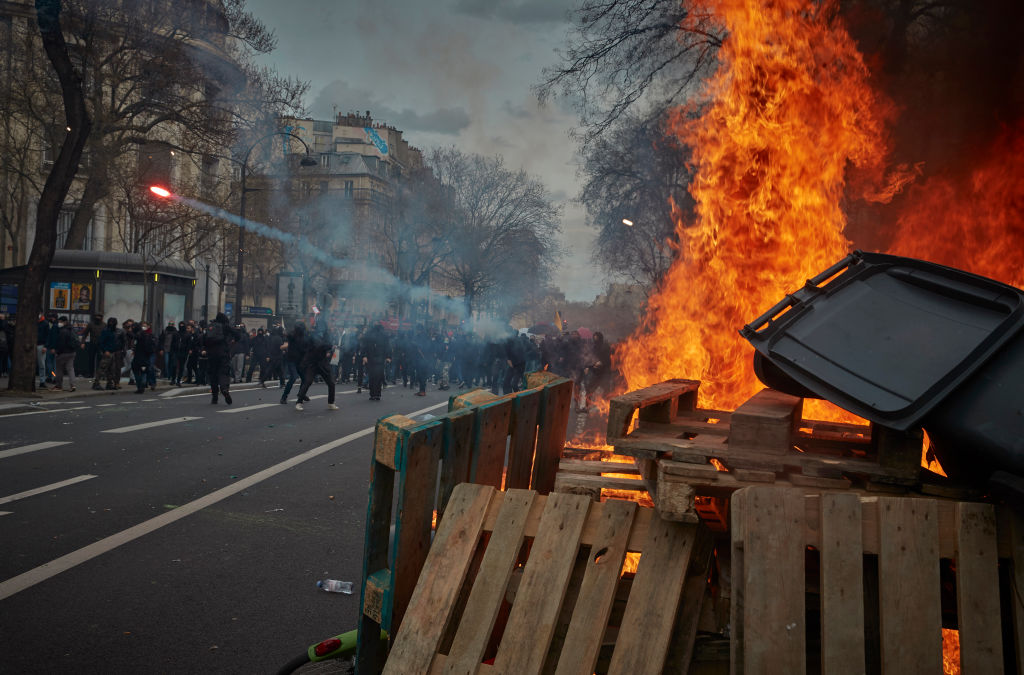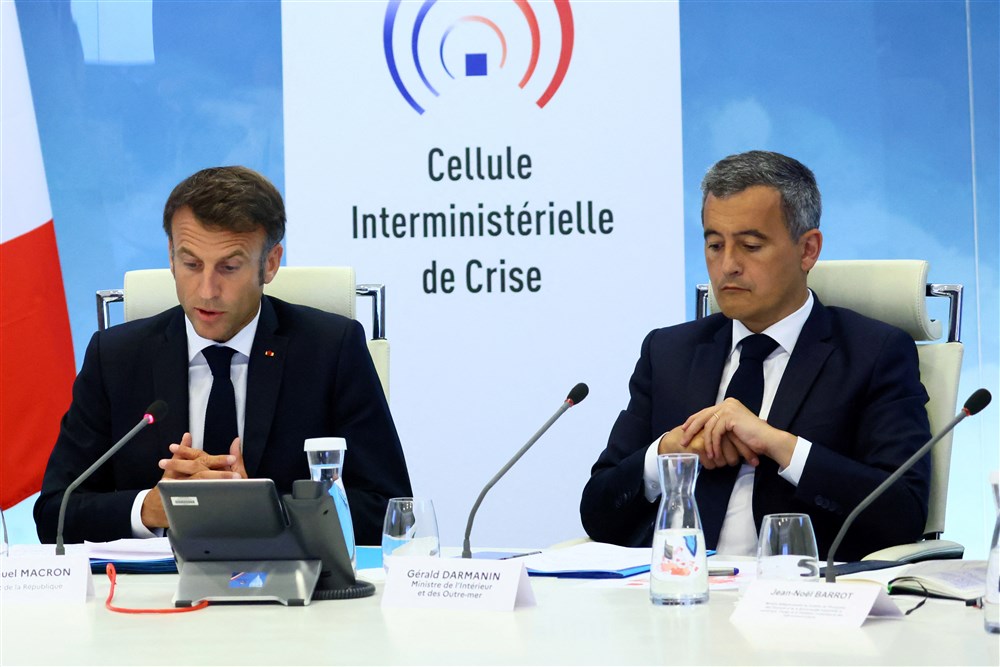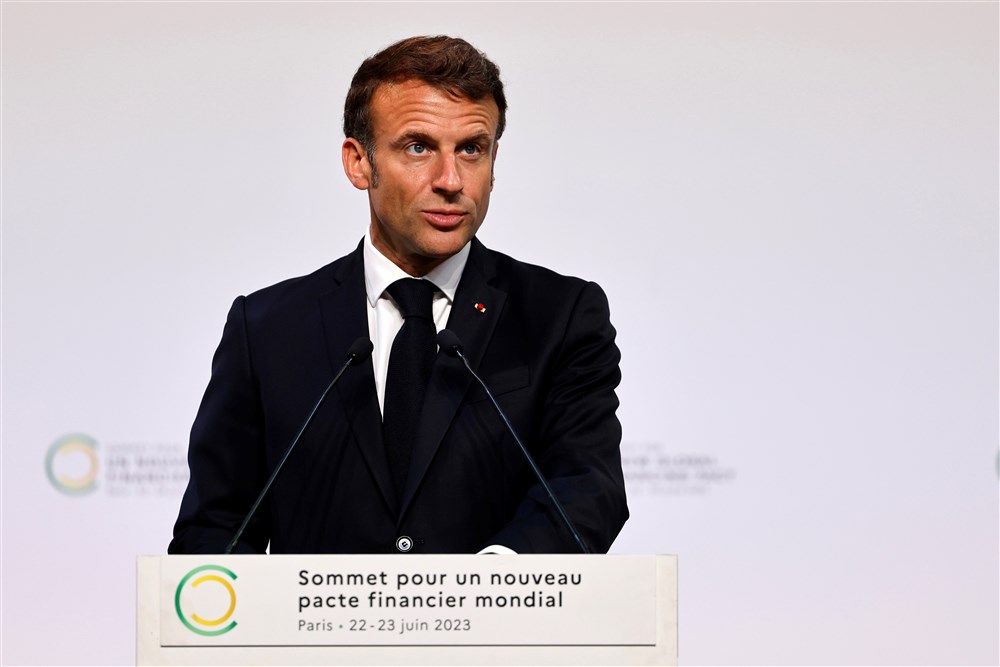French President Emmanuel Macron is said to be planning a major ministerial reshuffle as he tries to stop his government and France’s economy from sliding further into chaos and stagnation.
Following recent country-wide outbreaks of social unrest and violent riots, and faced with an ailing economy, Macron is experiencing record low approval ratings and an increasingly belligerent parliament.
Marine Le Pen, leader of the biggest opposition party – the populist Rassemblement National – said that the “dramatically disconnected” president was “condemning the country to impotence and immobility”.
Sources within the presidential Elysée Palace say that the planned reshuffle will see most of the cabinet lose their jobs, with just three ministers staying in office and the remaining 14 due to be replaced.
The scale of the predicted reshuffle illustrates the extreme stress that Macron’s government is under, observers say.
In parliament his party, previously called La Republique on Marche! and now called Renaissance, is outgunned by both the Right and Left and is struggling to pull together enough centrist allies to survive.
In March, Macron’s government avoided a no confidence vote by 17 votes.
While France is primarily run under a presidential system, parliamentary approval is still required to pass laws and reforms.
Evidence of Macron’s rapidly declining popularity could be seen at the Bastille Day parade on July 14, where during military processions in Paris the crowds could be heard baying for his resignation in French, shouting “Macron démission!”
French President Emmanuel Macron was booed by members of the public during the annual Bastille Day military parade in Paris https://t.co/7CcXm3JZs8 pic.twitter.com/l1UEvrlsIW
— Reuters (@Reuters) July 14, 2023
Among those tipped to be removed is interior minister Gérald Darmanin, one of the central figures in the current administration. It is rumoured his replacement is to be Jean-Michel Fauvergue, a former MP with Macron’s party and a senior police commander.
An administration official told French media outlet BFMTV that one of those confirmed to stay is Prime Minister Élisabeth Borne, portraying the reshuffle as simply the “start to the new school year”.
Many believe the official reshuffle announcement will come over the weekend of July 22, as Macron is set to fly out to the French-owned Pacific island of New Caledonia on July 28. A member of Borne’s entourage said that she will propose the cabinet changes to him by July 21.
France has seen two major eruptions of violent unrest so far this year. The first, at the end of January, was sparked by Macron’s reform of the French pension system, raising the retirement age from 62 to 64. Several months of nation-wide strikes ensued, including mass protests that often descended into riots and destruction.
Macron had used his special constitutional powers to force the reforms through the National Assembly.
After that outbreak of civil unrest, Macron promised “100 days of calm, unity, ambition and action in service of France”.
Before that period ended, the killing of Nahel, a teenager of North-African descent, allegedly by a Parisian police officer, then ignited a mass wave of riots and destruction across the country.
Even as tensions simmer on French city streets, a government official insisted that “the 100-day objective has been met and calm has returned”, and that the Bastille Day celebrations were “a success”.





